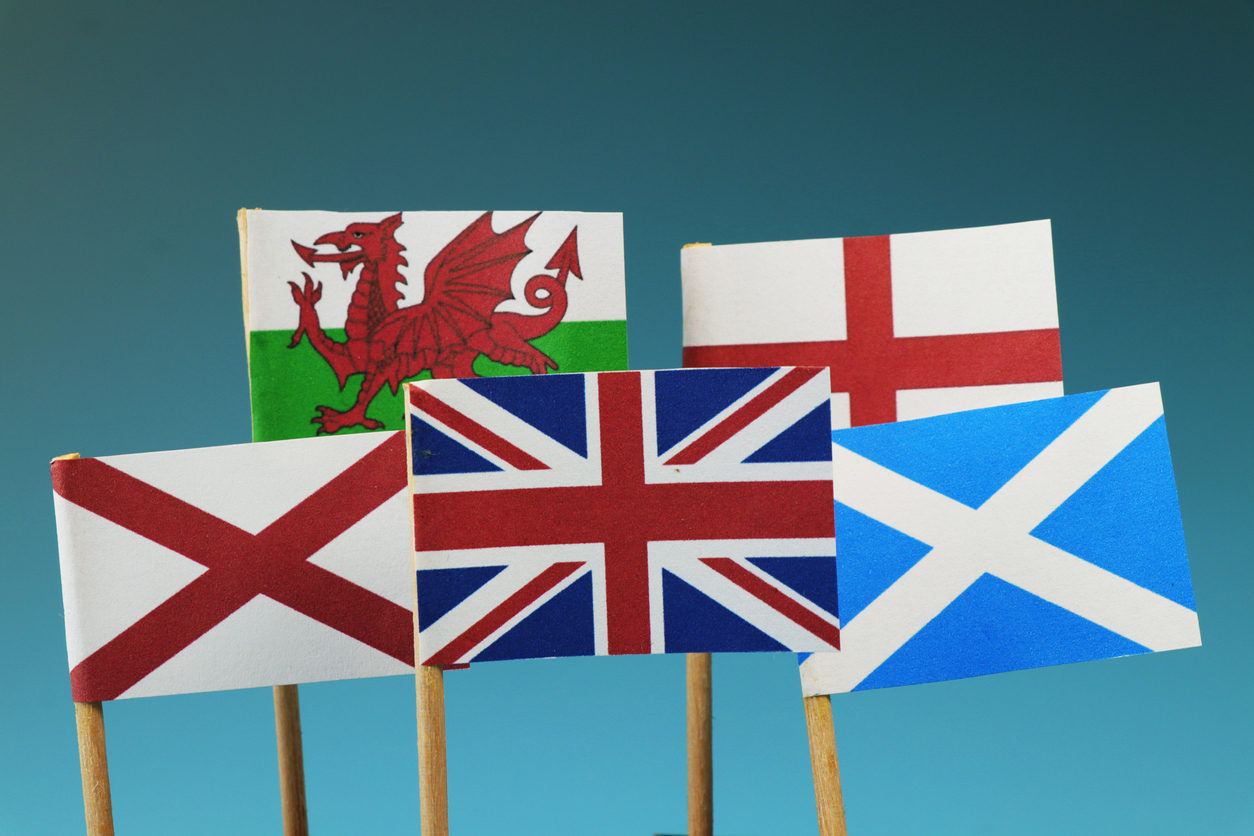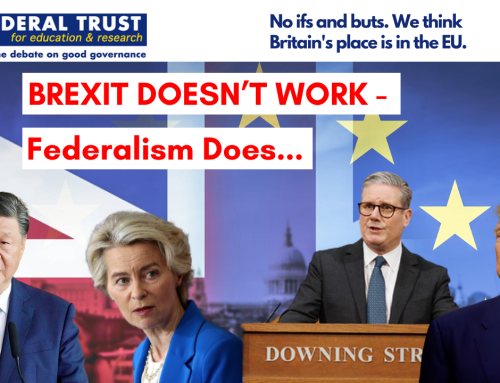It is fair to say that federalism makes most UK unionists uncomfortable when it is considered at all. It is seen as foreign and alien to the principle of absolute parliamentary sovereignty located in Westminster. In the 1970s the Kilbrandon Commission notoriously dismissed federalism as a constitutional structure for states not politically developed enough for full union. Even when devolution was eventually conceded by the Westminster elite, devolution was grasped as a way of maintaining parliamentary sovereignty, much as Home Rule had been proposed as a way out of the Irish crisis a century before.
No matter that devolution gave Scotland sub-state governance considerably stronger than that found in many, perhaps most, federal states. The Welsh model was much weaker and Westminster’s retained sovereignty real. But it was dysfunctional from the start and swept away in the 2011 referendum which saw the people of Wales vote for powers similar to those in Scotland.
Devolution has not been a weaker system of territorial governance than federalism. If anything Scotland from the outset was more coherently seen as a mini-state. Devolution did not even have the benefit of a clear rule book, again setting it apart from federalism. Quite why so many unionists thought this constitutional formula would knock nationalism dead is deeply curious. The failure of devolution as a containment strategy was made stark by the concession of the Scottish independence referendum in 2014.
The Scottish Government is no friend of federalism either. The SNP astutely utilises devolution as an open ended system that offers a clear path to independence. Federalism does the opposite: it is a constitutional settlement that divides sovereignty and entrenches it to allow each level of government to operate. The Welsh Government which has always been at least led by the Labour Party has been more interested in federalism. However, the “radical” federalism advocated by First Minister Mark Drakeford is far from the model found in the USA or more relevantly the parliamentary federalism of Canada and Australia. The former First Minister Carwyn Jones has gone further and called for a Union of sovereign nations that choose to pool enough sovereignty to allow a central UK government to function. This seems to be confederalism and a very different constitutional creature.
Confederalism is not a stronger version of federalism. Federalism is a constitutional structure designed to entrench the powers of central and sub-state governments so that neither can overwhelm the other. It is true that many unionists in particular see federalism as a system weighted in favour of the sub-states but this is a profound misreading. Alexander Hamilton urged a federal constitution in the 1790s as a way to establish an effective central government. The price he was willing to pay for this crucial bargain was the division of sovereignty. Above all, federalism is a state structure whereas confederalism is a treaty arrangement between independent states.
But could federalism work in the UK? We can certainly dismiss the notion that federalism is foreign to British political experience. In the 1860s Westminster created parliamentary federalism for application in Canada. It proved successful enough to be the basis of responsible government in Australia in 1900. Parliamentary sovereignty was later the favoured model for decolonisation: India and Nigeria remain federal states, although the federations of Central Africa and the Caribbean did not endure. Even at home federalism was regularly proposed as a way of resolving the Irish crisis.
Yet there lingers a genuine doubt about federalism’s practicality in a British context. Would England not dominate a federation if it had similar institutions to Scotland and Wales? Could England be successfully subdivided to reduce this risk? Would this be a price worth paying to save the Union or would the people of England walk away? It would be ironic indeed if English secession dissolved the UK!
These are substantial questions and they would have to be deliberated in an extensive constitutional process if the UK were to adopt a federal constitution. But remember where we are today. Has sovereignty not been divided already between the Home Nations? The people of Scotland have the right, at least once in each generation, to vote on independence. By inference the people of Wales and the people of England have the same right. Where is Westminster’s absolute parliamentary sovereignty in such “radical” devolution?
The essence of a federal UK is not difficult to discern. The domestic autonomy of the Home Nations would be recognised in a division of sovereignty. England’s autonomy could continue to be located in Westminster or through political powers being exercised in England’s cities and regions. Westminster would retain sovereignty over UK wide matters. The House of Lords could be reformed as the Chamber of the Union where it would have the power to uphold the Act of Federal Union.
Will we be able to get there? It seems unlikely that our present constitutional position can endure for long. A federal settlement would have to be asymmetric to allow the individual Home Nations room to flourish. This may be a new form of federalism but remember the creativity of parliamentarians in the 1860s when devising parliamentary federalism! And England? Yes, the Union is only going to endure if the people of England think the bargain to keep the UK together is worth the political price. However, the political price of the UK dissolving would be enormous. The world’s oldest multi-national democracy falling apart would have global ramifications.
Of course federalism might fail to provide a basis for an enduring Union. Perhaps the world is on the road to “radical” national self-determination where many more states are nation states. But if a federal union does not endure it would perhaps prepare the ground for co-operative structures based on unity not union, in other words a confederation of some sort.
Scottish secession remains a strong possibility that now demands unionists to offer a clear alternative settlement. I believe that settlement will need to be federal in character. Not to offer such an alternative would be a huge failure for unionism. And it would be a bleak outcome for democratic multinational states globally.







Leave A Comment